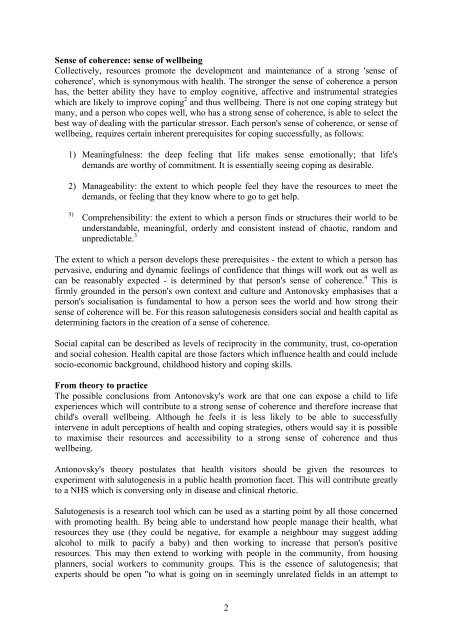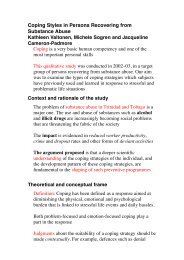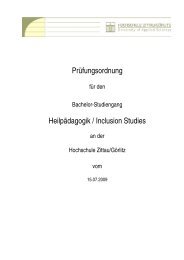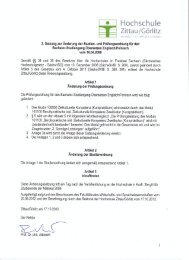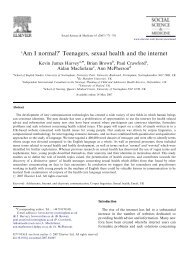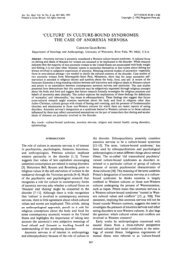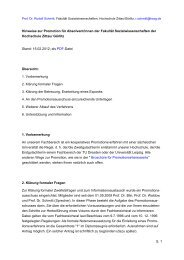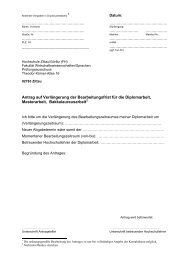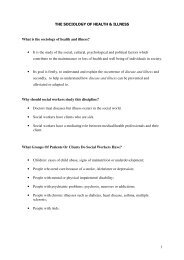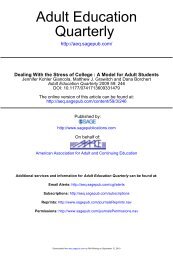WHAT IS SALUTOGENESIS?
WHAT IS SALUTOGENESIS?
WHAT IS SALUTOGENESIS?
Create successful ePaper yourself
Turn your PDF publications into a flip-book with our unique Google optimized e-Paper software.
Sense of coherence: sense of wellbeing<br />
Collectively, resources promote the development and maintenance of a strong 'sense of<br />
coherence', which is synonymous with health. The stronger the sense of coherence a person<br />
has, the better ability they have to employ cognitive, affective and instrumental strategies<br />
which are likely to improve coping 2 and thus wellbeing. There is not one coping strategy but<br />
many, and a person who copes well, who has a strong sense of coherence, is able to select the<br />
best way of dealing with the particular stressor. Each person's sense of coherence, or sense of<br />
wellbeing, requires certain inherent prerequisites for coping successfully, as follows:<br />
1) Meaningfulness: the deep feeling that life makes sense emotionally; that life's<br />
demands are worthy of commitment. It is essentially seeing coping as desirable.<br />
2) Manageability: the extent to which people feel they have the resources to meet the<br />
demands, or feeling that they know where to go to get help.<br />
3) Comprehensibility: the extent to which a person finds or structures their world to be<br />
understandable, meaningful, orderly and consistent instead of chaotic, random and<br />
unpredictable. 3<br />
The extent to which a person develops these prerequisites - the extent to which a person has<br />
pervasive, enduring and dynamic feelings of confidence that things will work out as well as<br />
can be reasonably expected - is determined by that person's sense of coherence. 4 This is<br />
firmly grounded in the person's own context and culture and Antonovsky emphasises that a<br />
person's socialisation is fundamental to how a person sees the world and how strong their<br />
sense of coherence will be. For this reason salutogenesis considers social and health capital as<br />
determining factors in the creation of a sense of coherence.<br />
Social capital can be described as levels of reciprocity in the community, trust, co-operation<br />
and social cohesion. Health capital are those factors which influence health and could include<br />
socio-economic background, childhood history and coping skills.<br />
From theory to practice<br />
The possible conclusions from Antonovsky's work are that one can expose a child to life<br />
experiences which will contribute to a strong sense of coherence and therefore increase that<br />
child's overall wellbeing. Although he feels it is less likely to be able to successfully<br />
intervene in adult perceptions of health and coping strategies, others would say it is possible<br />
to maximise their resources and accessibility to a strong sense of coherence and thus<br />
wellbeing.<br />
Antonovsky's theory postulates that health visitors should be given the resources to<br />
experiment with salutogenesis in a public health promotion facet. This will contribute greatly<br />
to a NHS which is conversing only in disease and clinical rhetoric.<br />
Salutogenesis is a research tool which can be used as a starting point by all those concerned<br />
with promoting health. By being able to understand how people manage their health, what<br />
resources they use (they could be negative, for example a neighbour may suggest adding<br />
alcohol to milk to pacify a baby) and then working to increase that person's positive<br />
resources. This may then extend to working with people in the community, from housing<br />
planners, social workers to community groups. This is the essence of salutogenesis; that<br />
experts should be open "to what is going on in seemingly unrelated fields in an attempt to<br />
2


